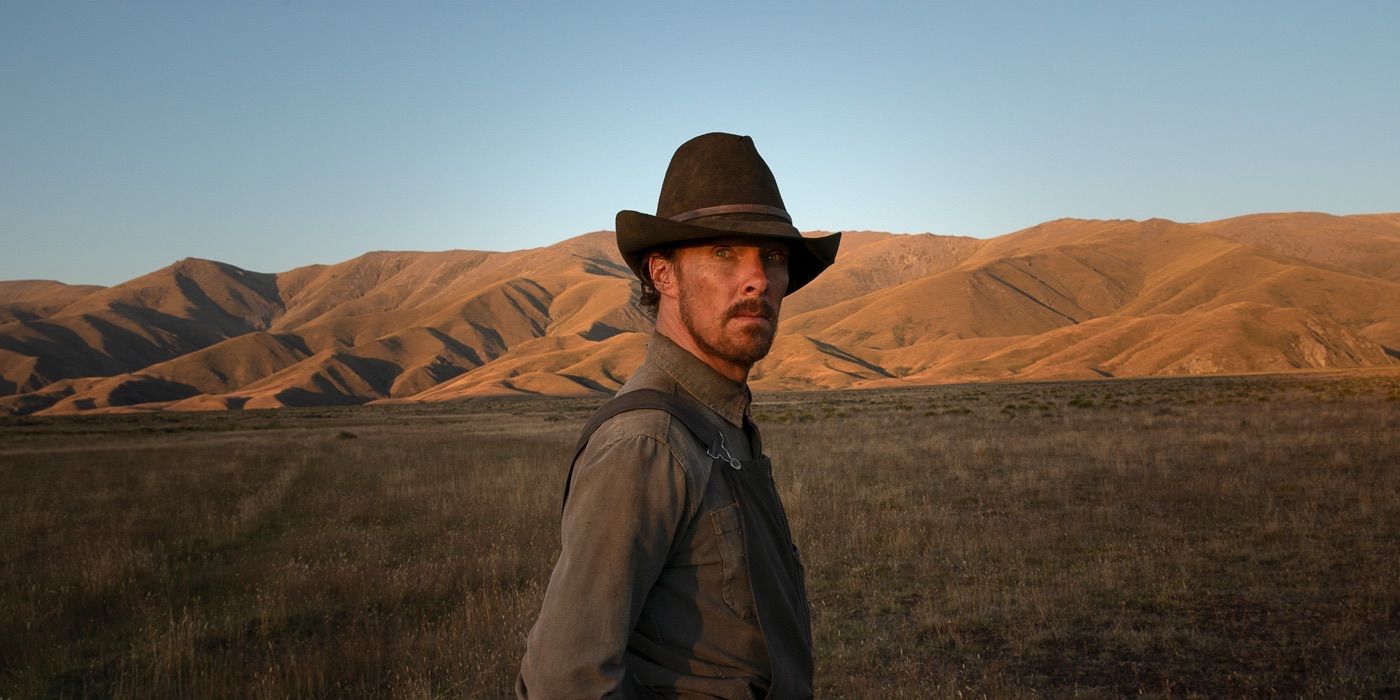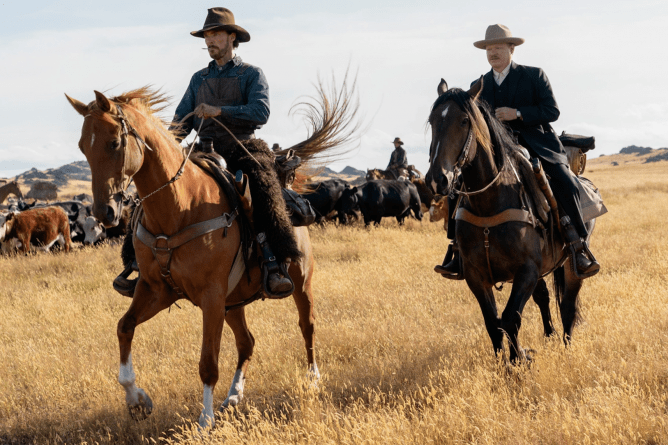Her first film in 12 years, Jane Campion’s The Power of the Dog is a venomous, suppressed exploration of masculinity on a disappearing Western front. Based on Thomas Savage’s book of the same name, the film follows two ranchers: Phil Burbank (Benedict Cumberbatch), and his brother, George (Jesse Plemons). George is stocky and plodding, wears suits and is always polite. Phil is lean and whip-smart, but with a cruel tongue and a savage instinct at the scent of any perceived weakness – including his own. He dominates the ranch, castrating bulls with his bare hands and commanding the property with the steely swagger of a true “cowboy”. So, when George disrupts the ranch hierarchy and unexpectedly brings home a wife, Rose (Kirsten Dunst), Phil utterly rejects her, beginning a campaign of psychological torture. But he faces an unlikely foe in Rose’s son, Peter (Kodi Smit-McPhee), as Phil and Peter’s growing relationship brings up deep secrets and a long-hidden yearning.
Campion’s adaptation trims the book down to its bare essentials, cutting much of the lead up and diving straight into the core dynamic between Rose, Phil, and Peter. She makes smart choices in streamlining the plot, and each modification only amplifies the ideas of the story. Pages of subtext are clearly suggested through just a single closeup or lingering shot. The nuances of Phil’s character, as much a sinister bully as he is tragically juvenile and defensive, come across especially clear. The result is a remarkably focused study of the three central characters and the complex tensions between them.
Set in rural 1920s Montana, The Power of the Dog depicts a frontier in the process of being overtaken. Phil rejects the encroaching boundaries of modern society, where men and women dress in expensive clothing and ride in cars instead of on horses. He bemoans the loss of “real men”, like his oft-mentioned mentor Bronco Henry. For Phil, the wilderness of the ranch is an escape, a harsh environment which he has learned to use to mask the parts of him he cannot bring himself to acknowledge. And Campion and cinematographer Ari Wegner depict this environment beautifully, subbing in the hills and mountains of Campion’s native New Zealand for Montana. We are often left lingering on the shadows of mercurial clouds on the imposing landscape or treated to wide aerial shots of the untamed wilderness. But Campion is careful never to portray these frames idealistically. The ranch is dry and dusty, and the hills and mountains are gray-tinged and barren. While undeniably breathtaking to look at, it is a message of fear and respect of ruthlessness, and a clear reflection of a personality like Phil’s.

And Benedict Cumberbatch, playing dramatically against type, throws himself into Phil’s dual nature. He moves through the film with a grace that is cold and dangerous, someone who is entirely aware of how much harm they are inflicting yet does it with relish and precision. But where Cumberbatch truly shines is in Phil’s momentary breaks of sensitivity. With just a handkerchief or a few tightly muttered lines, Cumberbatch captures a heartbreaking amount of unspoken feeling. While his performance can at times feel like a slightly unconvincing caricature, these moments are brief. And where Cumberbatch excels in Phil’s cruel, calculating nature, Dunst provides a worthy match in depicting Rose’s constant state of fear. Without going into unnecessary hysteria, Dunst gives a painful interpretation of a woman descending into a fundamental panic. It’s a performance that is integral to the film in creating a believable sense of danger throughout.

The Power of the Dog is a film full of that fundamental panic. Tension is the defining element of the story, and Campion delivers this through an approach that is subtle and naturalistic. Nothing is laid out in the open, yet every aspect of the movie works cumulatively to oppress. The cold and unnerving cinematography, the opaque screenplay – even the score is eerie and off-kilter, with melodies that never seem to resolve as they should. The tension is not borne out of high-strung filmmaking, but of a constant impression of massive truths left unsaid. And this is the true power that terrifies throughout, building a crushing atmosphere that lends the simplest gestures and the smallest hints a debilitating impact.
4/5 STARS

thanks alot of information
Where in the movie does Jane Campion acknowledge the author of the book? It only says written and directed by Jane Campion as far as I can see.